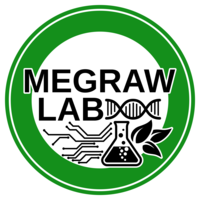| Title | TIPR: transcription initiation pattern recognition on a genome scale. |
| Publication Type | Journal Article |
| Year of Publication | 2015 |
| Authors | Morton, T, Wong, W-K, Megraw, M |
| Journal | Bioinformatics |
| Volume | 31 |
| Issue | 23 |
| Pagination | 3725-32 |
| Date Published | 2015 Dec 1 |
| ISSN | 1367-4811 |
| Keywords | Algorithms, Genomics, Machine Learning, Molecular Sequence Annotation, Sequence Analysis, DNA, Software, Transcription Initiation Site, Transcription Initiation, Genetic |
| Abstract | MOTIVATION: The computational identification of gene transcription start sites (TSSs) can provide insights into the regulation and function of genes without performing expensive experiments, particularly in organisms with incomplete annotations. High-resolution general-purpose TSS prediction remains a challenging problem, with little recent progress on the identification and differentiation of TSSs which are arranged in different spatial patterns along the chromosome. RESULTS: In this work, we present the Transcription Initiation Pattern Recognizer (TIPR), a sequence-based machine learning model that identifies TSSs with high accuracy and resolution for multiple spatial distribution patterns along the genome, including broadly distributed TSS patterns that have previously been difficult to characterize. TIPR predicts not only the locations of TSSs but also the expected spatial initiation pattern each TSS will form along the chromosome-a novel capability for TSS prediction algorithms. As spatial initiation patterns are associated with spatiotemporal expression patterns and gene function, this capability has the potential to improve gene annotations and our understanding of the regulation of transcription initiation. The high nucleotide resolution of this model locates TSSs within 10 nucleotides or less on average. CONTACT: megrawm@science.oregonstate.edu. |
| DOI | 10.1093/bioinformatics/btv464 |
| Alternate Journal | Bioinformatics |
| PubMed ID | 26254489 |
| PubMed Central ID | PMC4804766 |
| Grant List | GM097188 / GM / NIGMS NIH HHS / United States |
TIPR: transcription initiation pattern recognition on a genome scale.
Submitted by Megraw Lab Admin on Tue, 2016-07-12 22:05

